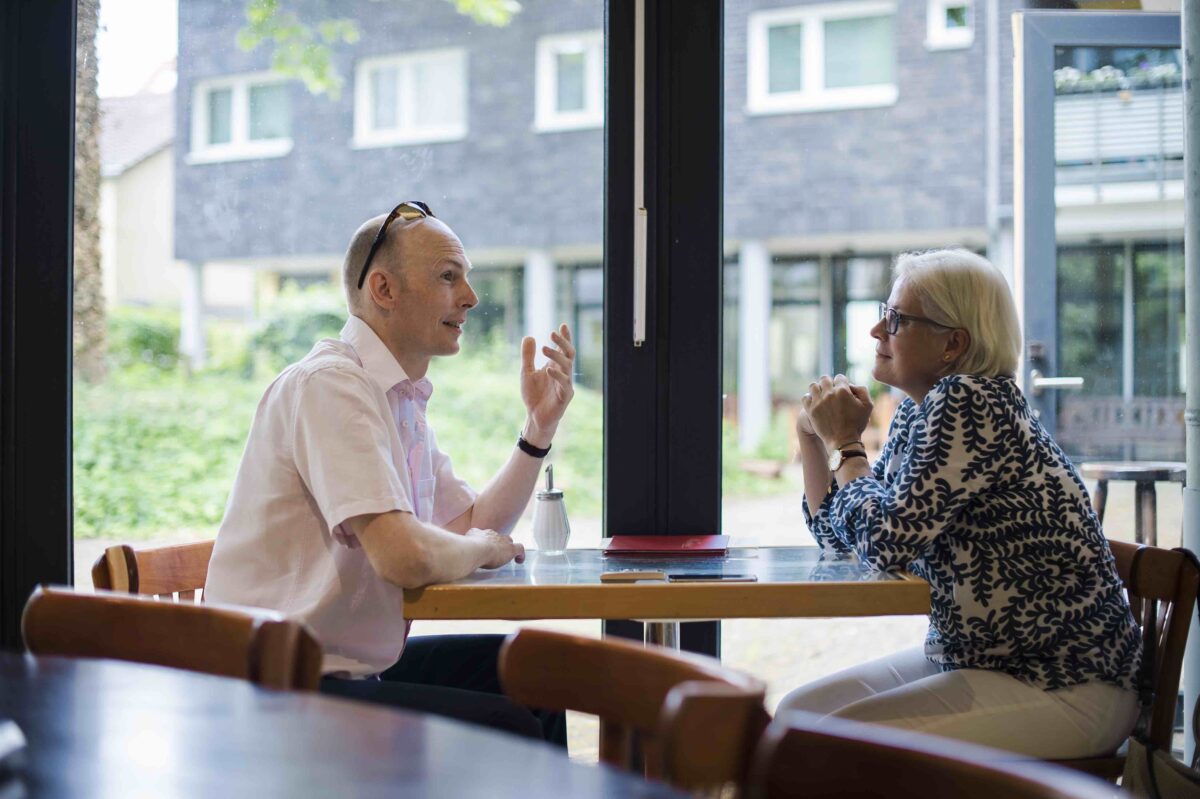
On June 18, 2017, ZEIT ONLINE organized the first ever My Country Talks event. 12,000 people signed up for the experiment, hoping to meet a neighbour with a different political view.
The idea for the first Germany
Talks event came about after Donald Trump had been elected president,
Britain had voted for Brexit and France was on the verge of electing a
right-wing president. Western societies seemed increasingly divided.
ZEIT
ONLINE's editorial team asked itself: What can we do to overcome
polarization? How can we help our readers to have a conversation outside
their own filter bubble?
On May 4, 2017, ZEIT ONLINE posted a widget on its homepage with the question: “May we introduce you to someone?” After a couple of weeks, 12,000 people had registered through the widget in the hopes of meeting someone in their neighborhood with a different political perspective.
The participants answered five yes-or-no questions about their political views, designed to make differences in political attitudes appear as clearly as possible. The questions included: Has Germany accepted too many refugees? Should Germany abandon the euro and return to the "Deutsche Mark"? Is the West treating Russia fairly? Was abandoning nuclear energy the right move? Should homosexual couples be allowed to marry? Respondents also entered their postal codes, email addresses and mobile phone numbers in order to allow an algorithm to pair them up (the algorithm was developed with funding from Google and the software-developing agency diesdas.digital).
On Sunday, June 18, 2017, 1,200 people met up across Germany for a political one-on-one discussion at 3.30pm – a dialogue involving the open exchange of opposing views and arguments.
In Berlin, a publisher met an immigrant from Egypt; in North Rhine-Westphalia, a student (coincidentally) met his conservative professor. Government employees met up with physicists, engineers with police officers, a daughter-in-law (coincidentally) with her father-in-law. Jochen Wegner, editor-in-chief of ZEIT ONLINE, debated with a machinery and plant operator who had answered differently to four of the five questions asked in the questionnaire (read more about his experience here).